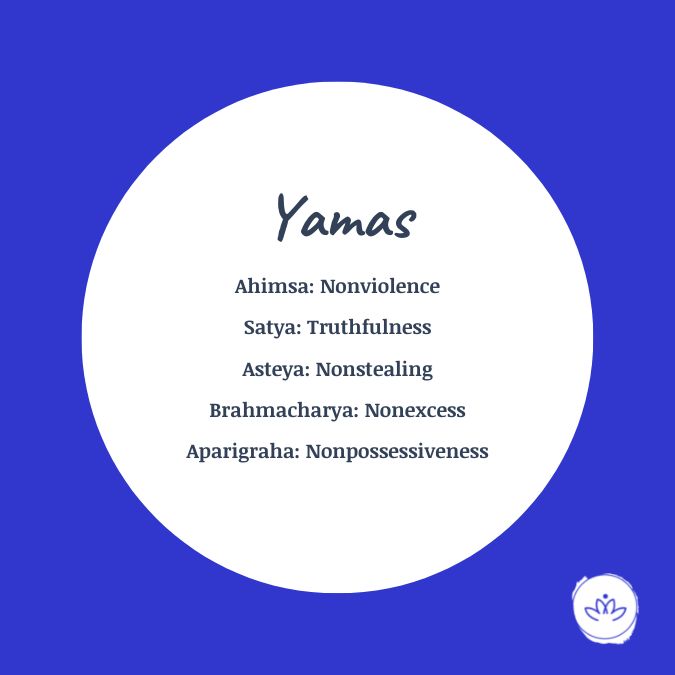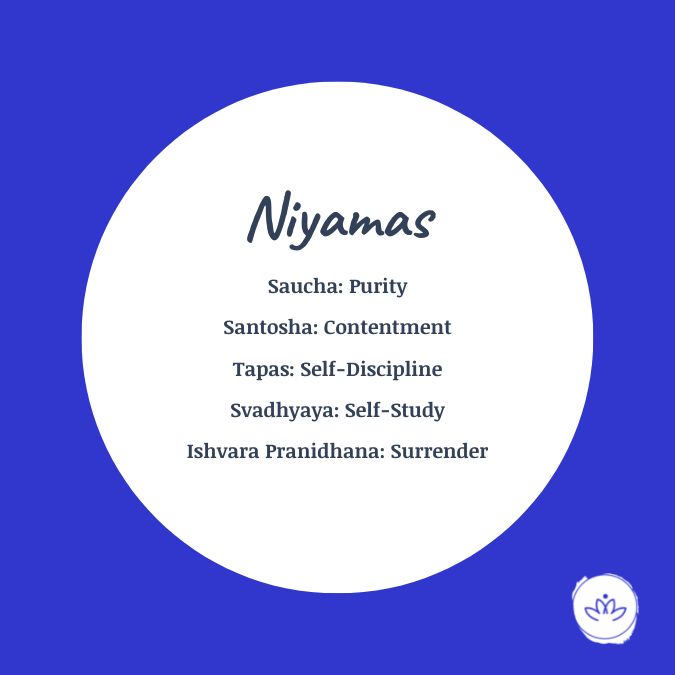Many of us are introduced to yoga as a physical practice that helps our bodies look and feel good. After a while many of us wonder if there is more to it than what we do on our sticky mat for 30-60 minutes, and of course, there is. The idea of practicing yoga is not just to focus and be more aware and mindful of our thoughts, feelings, and sensations while we are moving or meditating on the mat, but to carry this state of being with us when we leave class and step off of our mats into our daily lives. Ultimately it is a practice that can have a much deeper impact than just making us look good.
The yogi Maharishi Patanjali spoke about the eight branches, or limbs, of yoga. In the very well-known text The Yoga Sutras of Patanjali, the Yamas and Niyamas are shared as a guide on how to live in order to advance along a spiritual path towards enlightenment or Samadhi, the eighth limb of yoga.
Yoga’s Ethical Practice
The Yamas and Niyamas are often seen as “moral codes” or ways of “right living.” They form the foundation of our whole practice. Honoring these principles as we progress along “the path” means we’re always being mindful of each action and cultivating a more present and aware state of being. When you practice these guidelines, you do so with your actions, your words, and your thoughts. It is also interesting to note that the five Yamas and five Niyamas resemble the ten commandments and the ten virtues of Buddhism. This reminds us that we are all different yet united at the same time.
The Yamas
The Yamas are restraints to help you live in harmony with others in society. Yogis subscribe to the belief that we are all connected to everything in the universe and that oneness underlies everything. From this point of view, we are inspired to follow these general rules and pursue a life that does not cause harm to the earth, other people, or ourselves.
The five Yamas include:

The Niyamas
The Niyamas are observances or personal practices that are recommended for healthy living and spiritual existence. They are traditionally thought of as personal practices, but they also affect our relationships and communities.
The five Niyamas include:

These 10 jewels help us better understand how we can expand the benefits of our yoga practice beyond the mat and into life. It is not just our bodies that get stretched, expanded, and strengthened, but our minds and hearts as well. From this state of being, we move closer toward wholeness, connectedness, and unity – the true essence of yoga. The Yamas and Niyamas help us and the world around us be a better place.
If you would like to explore the Yamas and Niyamas more deeply, purchase the Explore the Yamas and Niyamas course in the Resilience & Grace online studio. This course will be taught as a livestream class every Monday from 5:30 – 6:30 pm CST in the online studio from January 16 – March 27, 2023. You can purchase a single class or the entire course. A great book to read for more information is Deborah Adele’s book, The Yamas & Niyamas: Exploring Yoga’s Ethical Practice.

